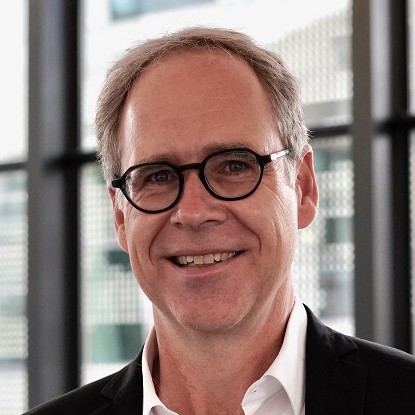Dr Edvaldo Vasconcelos Soares Maciel
Age: 30
My research areas: Analytical Chemistry, Chromatography, Mass Spectrometry, Graphene-based materials.
Name of my University / Research Institute: University of Sao Paulo, Chemistry Institute of Sao Carlos, Brazil
Research period at the TU Darmstadt: April 2022 to July 2024
Programme: Humboldt Research Fellowship for postdoctoral and experienced researchers
My field of research is fascinating. The best way to explain it to non-specialists is…
My current field of research is a combination of analytical chemistry and structural biology. My field of expertise is in developing methods based on chromatography and mass spectrometry for analysing small molecules such as pharmaceutical drugs and pesticides. I now want to apply my knowledge in a more biological context focusing on peptides and proteins that play a role in neurodegenerative diseases such as Parkinson’s.
What research questions are you currently working on?
Some neurodegenerative diseases occur due to protein misfolding, a process possibly ‘toxic’ to the body. In particular, α-synuclein and leucine-rich repeat kinase 2 are target proteins, as they can exist in different states, only some of which are disease-related. We want to study the structure of these states, and then synthesize affinity materials able to catch just the disease-indicative protein from a biological matrix. This could improve understanding and diagnosis of misfolding diseases.
My most important success in research to date is…
I have used automation and miniaturization to create modern analytical methods with environmentally friendly characteristics. I developed greener alternatives that consume fewer reagents and generate lower volumes of toxic waste compared to conventional methods. Noteworthy, I synthesised graphene-based materials for extracting contaminants from complex matrices, and I developed automated sample preparation techniques coupled with liquid chromatography and mass spectrometry.
I have chosen TU Darmstadt because…
the research group of Professor Dr Frederik Lermyte do cutting-edge research on topics which I wanted to know more about, especially structural mass spectrometry techniques focused on studying proteins. His lab is composed of talented and friendly researchers dedicated to pushing science forwards, and that is the environment where I want to develop science. Of course, the reputation of Darmstadt and the Technical University as scientific leading places also contributed to my desire to live here.
What reputation does German research enjoy in your home country?
In Brazil, Germany has a prestigious reputation as a science-traditional country where some of the most important scientists in history were born. Brazilians consider Germans as smart people who care about science and promote it. To be honest, in my perspective Germany is one of the best places on earth to do science and that is why I wanted to be a postdoctoral researcher here.
Questionnaire for the host
Guest of: Professor Dr Frederik Lermyte
Department: Department of Chemistry
What did you appreciate most about your guest, or what is it that impressed you most favorably…
I was deeply impressed by Edvaldo’s willingness to take on the dual challenge of moving to a different continent, and at the same time applying his knowledge to a very different field than what he did before. This showed a desire to take charge of his own career that is quite impressive for someone just finishing their PhD, as well as a high level of maturity. Edvaldo has only been in the lab for a few months now, but he is already contributing his own ideas to shape his research.
You, your team, and TU Darmstadt benefit from your guest’s…
We benefit a lot from the knowledge exchange with a member of the group who is still relatively new, and who has a profound expertise in a field that is closely related to our research focus, but also slightly different. The resulting conversations sometimes lead to a new perspective on some of the work that goes on in the lab. In addition, he has already designed and built a few devices in the lab that are primarily meant for his own research, but that other group members also benefit from.







